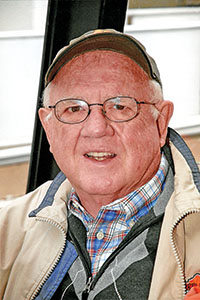DURING LAST MONTH’S American Association of Equine Practitioners (AAEP) convention in Alberquerque, NM., an interesting question was raised about ethical confrontations between vets, farriers, trainers and horse owners.
A shoer asked attendees in one session what they felt should be done when an equine veterinarian expresses unnecessary criticism of a farrier’s work.
A local veterinarian in this shoer’s area is totally sold on natural balance and the four-point trim and believes these techniques should be used on every horse in his practice.
When the farrier refused to shoe in this manner for the good of the horse, he was bad-mouthed by the vet to clients.
As a result, this highly respected shoer lost a $20,000 shoeing account when the vet convinced the stable manager to get another farrier who would use these techniques.
Other area farriers have lost anywhere from $20,000 to $30,000 in shoeing business because of unprofessional criticism from the vet. They told clients that they wouldn’t use these techniques because they’d found these ideas didn’t work.
Even though some horses in the area had gone lame from use of these procedures, the vet still demanded they be used. The farriers certainly didn’t think the resulting criticism to clients of their shoeing talents was justified.
What To Do?
Equine veterinarians in the session agreed that there’s definitely a way to tackle an unprofessional behavior problem. Every citizen has the right to file a complaint with the veterinary board located in each state. And the vets at the AAEP meeting pointed out that this definitely includes being able to file a complaint for unprofessional behavior.
When an official complaint is filed against a veterinarian, the staff of the state veterinary board has an obligation to investigate and decide if the claim is warranted or unwarranted.
If they feel the claim is warranted, the veterinarian will be cited and told to cease the unprofessional practice. If the vet doesn’t comply with the order, he or she runs the risk of having their license to practice veterinary medicine suspended in that state.
Take Action Now!
Both farriers and vets attending this session felt the first step should be for the farrier to communicate with the vet and discuss the unfair criticism. Let the vet know you don’t think it’s fair to have your shoeing talents criticized to clients since you feel it represents very unprofessional ethical behavior on their part.
In most cases, voicing this concern should clear up the problem. Hopefully, the offending party will see the error of their ways and take a look at the dangers in continuing to make unprofessional shoeing claims.
The AAEP session participants agreed that if anyone was making undue criticism of a farrier’s shoeing techniques, it is time to do something.
Just because someone really believes in a shoeing technique, or doesn’t believe in one, doesn’t give them the right through unprofessional behavior to destroy a person’s business and means of making a living. That’s not right.







